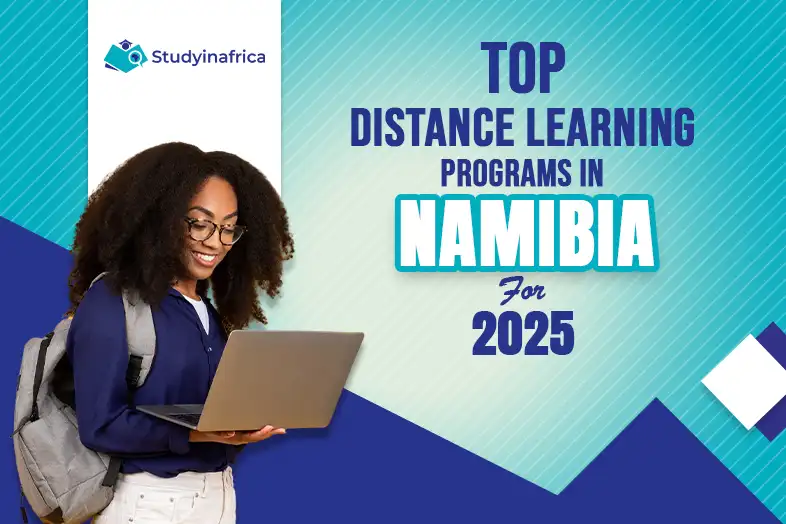
Blog Summary
The rise of distance learning in Africa is transforming education by offering flexible, affordable, and accessible options for students across the continent. As internet access improves, more universities and colleges are adopting online programs, with popular courses. Key market trends for 2024 include mobile learning, AI integration, and expanded postgraduate programs. However, challenges like limited internet access and the cost of data remain. Overall, distance education is poised to play a significant role in addressing Africa’s educational and healthcare needs in the coming years.
Table of Contents
Introduction
In recent years, distance learning has transformed education globally, with Africa experiencing rapid growth in this space. As internet access expands and more universities adopt online programs, the continent is witnessing an education revolution. But what’s driving this boom, and where is it headed in 2024? Let’s explore key market trends, challenges, and predictions for the future of distance learning in Africa, with a focus on distance learning universities, distance learning colleges, and the rising interest in courses like Master of Public Health.
The Rise of Online Education in Africa
Education in Africa is experiencing a profound transformation. Traditionally, attending physical classes was the primary mode of learning, but the last decade has seen a surge in online education programs across the continent.
Online education has surged in popularity across Africa due to its flexibility, affordability, and accessibility, particularly benefiting students in rural areas. According to recent reports, Africa’s e-learning market is expected to grow at a compound annual growth rate (CAGR) of 14.8% between 2023 and 2028. Over 60% of universities on the continent now offer online programs, with a significant rise in student enrollment. As internet access expands, particularly through mobile devices, millions more students can pursue higher education remotely, making distance learning a critical tool in bridging the education gap across the region.
Key Drivers Behind the Boom
A number of factors have fuelled the swift growth of Study in Africa. These include:
- Increased Internet Access: The expansion of internet coverage in Africa has allowed students from even the most remote regions to access quality education online.
- Affordability: Tuition fees for online courses are often lower than traditional programs, making education accessible to a broader audience.
- Flexibility: Distance learning programs offer flexible schedules, allowing students to work or care for their families while studying.
- Government Support: Many African governments have implemented policies to promote online education, recognizing its potential to address the shortage of educational institutions.
These drivers are not only making distance education more appealing but also positioning Africa as a significant player in the global online education market.
Popular Distance Learning Programs
What programs are students flocking to? Distance learning universities offer a variety of programs Customized to address the needs of various industries. Some of the most popular include:
- Business Administration
- Information Technology
- Education and Teaching
- Master of Public Health
Among these, the Master of Public Health (MPH) is gaining considerable attention. With healthcare challenges becoming a global focus, many students in Africa see the MPH as a stepping stone to making an impact in their communities.
Emerging Distance Learning Colleges in Africa
In addition to well-established universities, several smaller colleges are also embracing online education. These colleges offer niche programs, sometimes partnering with international institutions to provide globally recognized certifications. For instance, some colleges focus on specialized fields like technology, health sciences, and business, ensuring that students have access to industry-relevant education.
Market Trends for 2024
Looking ahead to 2024, several trends are expected to shape the future of distance education in Africa:
- Increased Adoption of Mobile Learning: As smartphones become more affordable, mobile-based learning is expected to rise, allowing students to access educational content.
- Artificial Intelligence (AI) in Learning: AI-powered platforms will likely play a bigger role in customizing learning experiences for individual students.
- Virtual and Augmented Reality (VR/AR): These technologies will bring a more immersive experience to online learning, especially in fields that require practical skills like healthcare and engineering.
Predictions for the Future of Online Learning
As we move further, the future of distance learning in Africa looks promising. It’s predicted that:
- More Universities Will Go Fully Online: As the demand for distance education continues to grow, we can expect more African universities to offer fully online programs.
- Partnerships with Global Institutions: African universities and colleges will increasingly partner with international institutions, providing students with access to global education standards.
- Focus on Lifelong Learning: Online learning will extend beyond traditional degrees, with an emphasis on upskilling and continuous professional development.
The Impact of Distance Learning on Healthcare
One of the key areas where distance learning is making a difference is in healthcare. With a shortage of healthcare professionals in many African countries, online programs are offering an accessible way for students to gain the qualifications needed to fill these gaps. Programs like the Master of Public Health are particularly valuable, equipping graduates with the skills to tackle pressing health issues in their communities.
The Rise of the Master of Public Health Online
The Master of Public Health (MPH) is fast becoming one of the most sought-after distance learning programs in Africa. Given the ongoing healthcare challenges, the MPH offers students the opportunity to make a direct impact. With many universities now offering the MPH online, students can study while working in healthcare roles, ensuring that they can apply their learning in real-time.
Conclusion
The boom in distance learning in Africa is not just a trend; it’s a solution to many of the continent’s educational challenges. As we move into 2024, we can expect to see more innovations, increased accessibility, and a growing number of students enrolling in online programs. From distance learning universities to specialized programs like the Master of Public Health, Africa is at the forefront of a new era in education.
FAQs
1. Why is distance learning becoming so popular in Africa?
Distance learning is gaining popularity in Africa due to increased internet access, affordability, flexibility, and the ability to study from remote areas. It also allows students to balance work, family, and education more easily.
2. Are distance learning degrees recognized internationally?
Yes, many distance learning universities and colleges partner with international institutions to offer globally recognized degrees.
3. What challenges do students face with distance learning in Africa?
Challenges include limited internet access in rural areas, the high cost of mobile data, maintaining the quality of education, and a lack of digital literacy among some students.
4. How can I ensure the quality of a distance learning program?
Always check the accreditation status of the university or college and look for reviews or testimonials from past students.
5. What are the technological requirements for distance learning?
Students need a reliable internet connection, a laptop or mobile device, and access to digital learning platforms like Zoom or Moodle.




